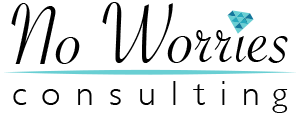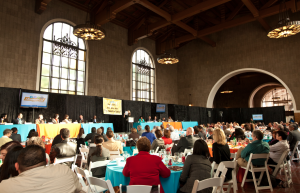As planners, the most effective experiences we have are meetings with clients – either via phone, Facetime, Skype, or in person. These tend to be outstanding opportunities to regroup on loose ends, conduct discussions about complex or emotional elements of the wedding, and to offer in-depth guidance.
On the flip side, meetings can become overlong, full of extraneous information that do not concern your duties, or a waste of time if not everyone is prepared. Here’s how to make sure your meetings are hyper productive and effective:
- Send an agenda at least two days prior. A short bullet point list with talking points is essential to making sure your clients are prepared. It also triggers elements the clients want to discuss as well, and I allow them to add items to the agenda before we meet. Then, I can prepare to discuss that topic and not be caught off guard.
- Set a time frame. I’ve had brides who lived out of state, who would chat with me on the phone for almost two hours, but we got an amazing amount of work done in that time. By contrast, you could speak with another client for 30 minutes and constantly circle the same subject over and over with nothing resolved. Kindly ask the client to get back to you with their evolving thoughts on the matter and nicely guide them to the next subject. Starting out each call or meeting with “We have 1 hour and 15 minutes to go over everything” or even better, adding this info in the email with the agenda, will set the tone and protect you from having to outsource additional staff – work beyond normal business hours – to get all your other to-do’s done.
- Calendar phone calls. Always try to set aside a formal time for phone calls. Our job is not solely a sit-down desk job; off site meetings, driving to rehearsals, and conducting the actual events mean we need to be sure we have time to focus and get settled before heading into a phone call. This should be spelled out in your initial orientation doc or contract to the client.
- Write down a few key details after the meeting. If you’re like me, you’re writing or typing in notes during the meeting. But, there are so many elements to each wedding and event, that the core takeaways can get lost. I now take this famous advice to heart and write three key details unique to the event after the client has left. it helps me focus on what makes their event unique, on key logistical concerns that need special attention, and any urgent needs they may have.
By prepping both yourself and the client for each meeting and shaping the flow of discussion, you can make meetings highly productive for all involved. Further articles on successful meetings can be found here and here.

